This is an annual program organized by the Department of State Protocol and Foreign Interpretation (formerly the Department of Foreign Translation and Interpretation) in coordination with the Department of Organization and Personnel for the network of collaborators of the Ministry of Foreign Affairs ; it is also the first course after the Department of Foreign Translation and Interpretation merged with the Department of State Protocol, opening a series of training activities on translation and interpretation in 2025.
According to Ambassador, Director of the Department of State Protocol and Foreign Interpretation Pham Binh Dam, in the context of the country promoting comprehensive international integration, foreign affairs in general and foreign translation and interpretation in particular play an increasingly important role. The foreign translation and interpretation team is a key force, contributing to the success of high-level foreign affairs activities of the Party and State.
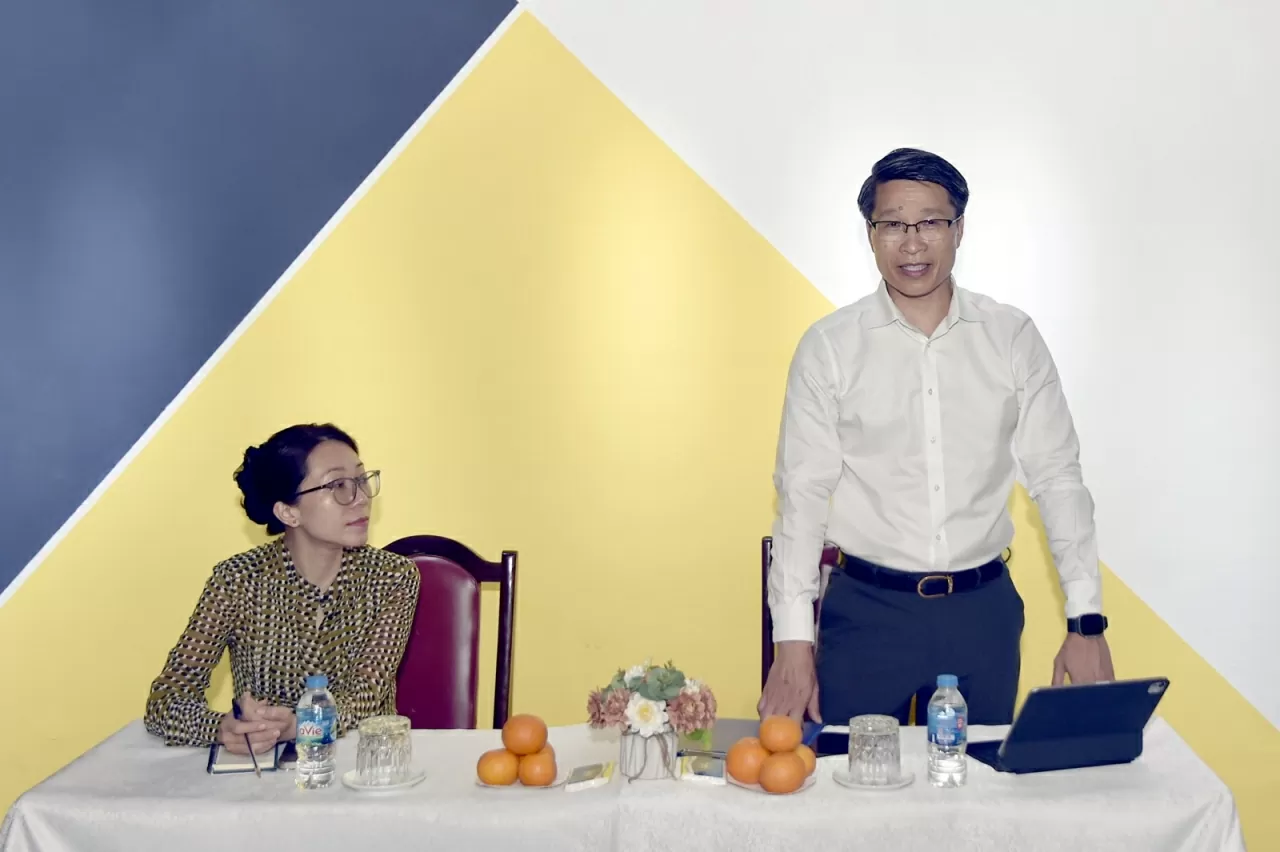 |
| Ambassador, Director of the Department of State Protocol and Foreign Interpretation Pham Binh Dam emphasized that the foreign translation and interpretation team is a key force, contributing to the success of high-level foreign affairs activities of the Party and State. (Photo: Quang Hoa) |
Ambassador and Director Pham Binh Dam informed that currently, the network of collaborators of the Ministry of Foreign Affairs is a large and multilingual network of translators and interpreters with a total of 81 people and 19 languages. This is the core force serving senior leaders at many important foreign affairs events. Notably, in 2024, collaborators directly participated in nearly 300 high-level translations, contributing to the success of many important events of the country.
"Realizing that importance, the Ministry of Foreign Affairs always focuses on regularly improving the knowledge and skills of foreign interpretation for officials and collaborators working in interpretation to meet new requirements," the Director of the Department of State Protocol and Foreign Interpretation pointed out.
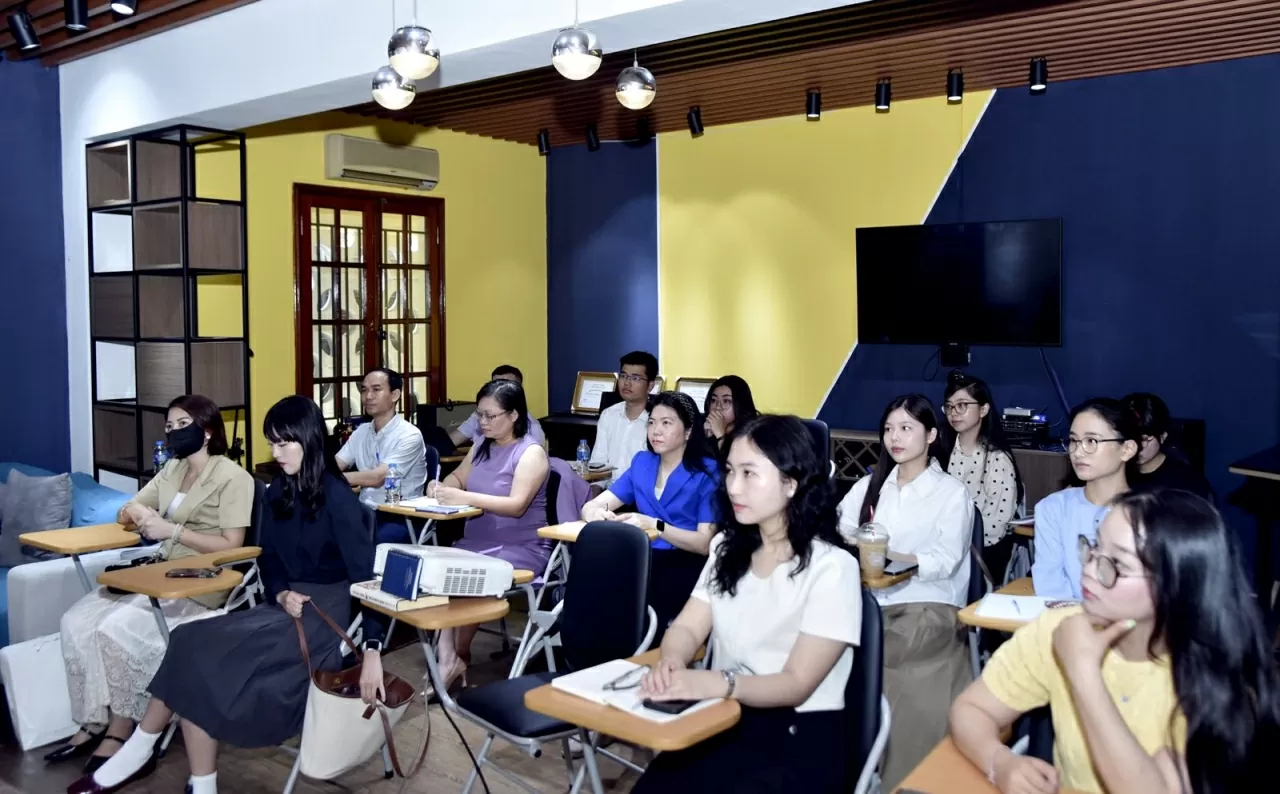 |
| Trainees attend a training course on foreign interpretation skills for the Ministry of Foreign Affairs' extended network of collaborators. (Photo: Quang Hoa) |
Director Pham Binh Dam also said that the training course helps trainees access basic foreign interpreting knowledge, necessary skills in consecutive interpreting, practice consecutive interpreting and introduce simultaneous interpreting, as well as exchange practical experiences in foreign interpreting in the new context.
In particular, this course is not only for staff in the Ministry's translation and interpretation network, but also for staff who wish to join the network and young staff who need to use interpretation skills at work.
| Related news |
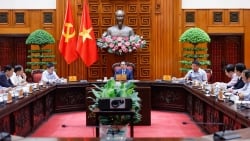 Elevating foreign affairs in the era of growth, building a comprehensive, modern, professional and effective diplomatic sector Elevating foreign affairs in the era of growth, building a comprehensive, modern, professional and effective diplomatic sector |
"The phrase "collaborator (expanded)" in the name of today's course also reflects this spirit - expanding the audience, inheriting experience and developing the next generation," the Director emphasized.
In addition, Ms. Nguyen Dieu Ha, Head of Training and Recruitment, Department of Organization and Personnel, said that the foreign interpretation skills training course is one of the contents of the annual training and development plan for cadres, civil servants and public employees of the Ministry of Foreign Affairs.
Previously, this work was carried out very effectively by the National Translation and Interpretation Center, then the Department of Foreign Translation and Interpretation. In the new context, when the Ministry of Foreign Affairs received additional functions and tasks from the Central Foreign Affairs Committee and the National Assembly's Foreign Affairs Committee, and at the same time reorganized the apparatus, the current foreign affairs staff not only perform their main expertise but also take on many other tasks, including translation and interpretation.
According to Ms. Nguyen Dieu Ha, the Ministry's translation and interpretation network is widespread, covering many languages. The main languages are handled by the State Protocol Department and Foreign Translation, but rarer languages still require the support of a network of collaborators from many units within the Ministry. Therefore, the large number of staff registering to attend today's class demonstrates a sense of responsibility, passion and desire to learn in translation and interpretation work.
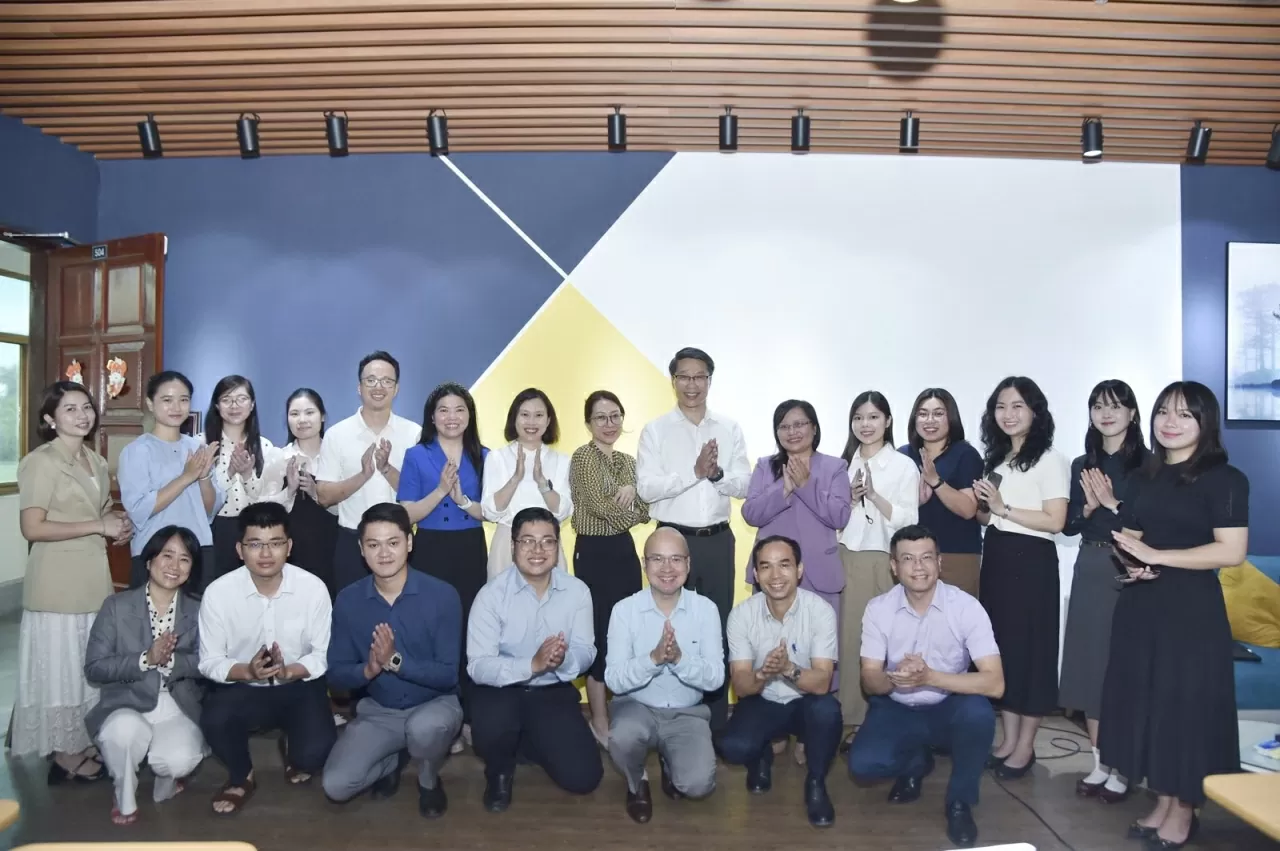 |
| This course is not only for staff in the Ministry of Foreign Affairs' translation and interpretation network, but also for staff who wish to join the network and young staff who need to use interpretation skills in their work. (Photo: Quang Hoa) |
On behalf of the Department of Organization and Personnel, Ms. Nguyen Dieu Ha expressed her belief that with a team of experienced lecturers from the State Protocol Department and Foreign Interpretation, the students will be fully equipped with knowledge and updated with necessary skills, thereby better serving their professional work.
Also within the framework of the opening ceremony, Ms. Chu Thu Phuong, an officer from the Department of Foreign Affairs and Cultural Diplomacy, represented the students to share their thoughts. Ms. Phuong commented that this is a practical activity, meeting the practical needs of officers working in foreign affairs, especially in the context of increasing workload and increasingly high requirements for quality of interpretation.
"The class is especially important for staff who have never had much experience in interpreting, helping them not only practice language reflexes but also grasp many seemingly simple but decisive skills in practice," Ms. Phuong shared.
In addition, she also expressed the concerns of many students about the impact of artificial intelligence (AI) on the translation profession. Accordingly, she hopes that during the learning process, lecturers will help students better understand the role and prospects of translators and interpreters in the new era, as well as how to adapt to maintain the value of the profession in the face of the wave of technology.
This training course on foreign translation skills for the network of collaborators (expanded) has 20 trainees, with 9 languages (English, German, Korean, Japanese, Khmer, French, Spanish, Portuguese, Chinese) from 8 units in the Ministry. There are 3 main subjects: Officers in the network of translators and interpreters of the Ministry of Foreign Affairs; officers who wish to join the network of collaborators; young officers who need to use translation skills in their work. Here, learners are updated with the requirements for foreign interpreting in the new context; basic skills in consecutive interpreting; practice consecutive interpreting, introduction to simultaneous interpreting (with the cabin system); exchange professional experience with a number of professional foreign interpreters. |
Source: https://baoquocte.vn/nang-cao-kien-thuc-va-ky-nang-phien-dich-doi-ngoai-dap-ung-yeu-cau-cua-nganh-ngoai-giao-trong-thoi-dai-moi-314809.html




![[Photo] Prime Minister Pham Minh Chinh chairs the Government's online conference with localities](https://vphoto.vietnam.vn/thumb/1200x675/vietnam/resource/IMAGE/2025/10/5/264793cfb4404c63a701d235ff43e1bd)


![[Photo] Prime Minister Pham Minh Chinh launched a peak emulation campaign to achieve achievements in celebration of the 14th National Party Congress](https://vphoto.vietnam.vn/thumb/1200x675/vietnam/resource/IMAGE/2025/10/5/8869ec5cdbc740f58fbf2ae73f065076)
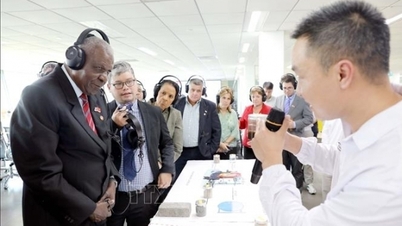
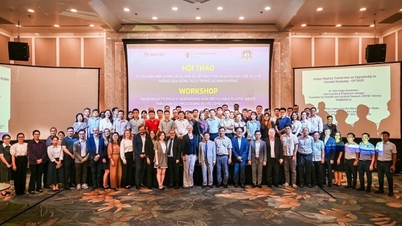
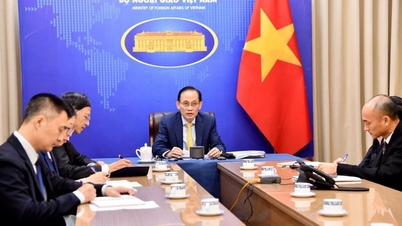


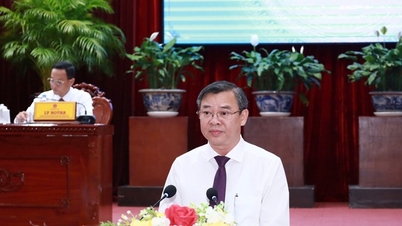





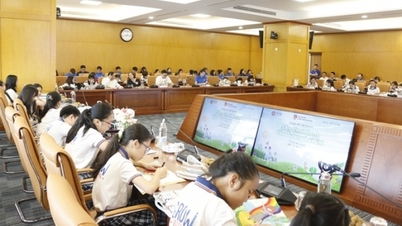


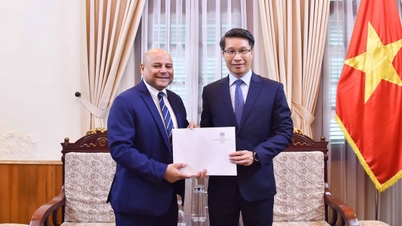
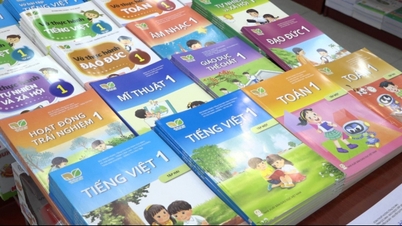




























![[VIDEO] Summary of Petrovietnam's 50th Anniversary Ceremony](https://vphoto.vietnam.vn/thumb/402x226/vietnam/resource/IMAGE/2025/10/4/abe133bdb8114793a16d4fe3e5bd0f12)

![[VIDEO] GENERAL SECRETARY TO LAM AWARDS PETROVIETNAM 8 GOLDEN WORDS: "PIONEER - EXCELLENT - SUSTAINABLE - GLOBAL"](https://vphoto.vietnam.vn/thumb/402x226/vietnam/resource/IMAGE/2025/7/23/c2fdb48863e846cfa9fb8e6ea9cf44e7)














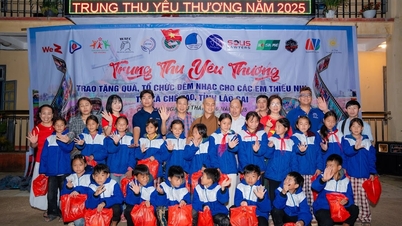

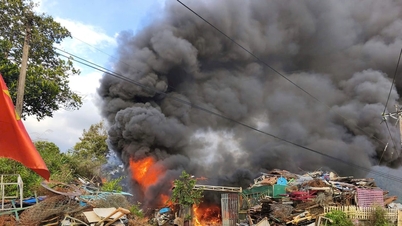

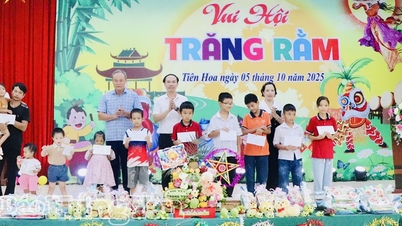

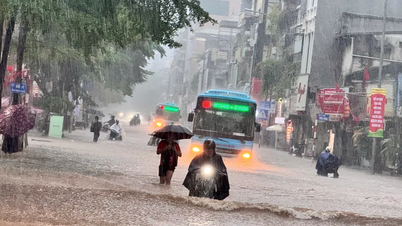















Comment (0)